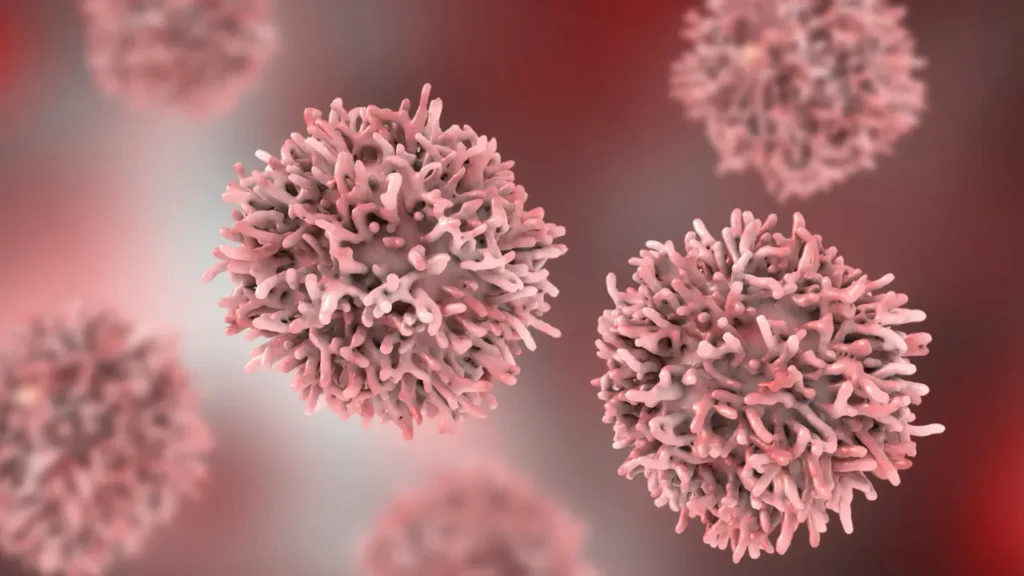Extensive scientific research is being done on a dietary supplement called coolwort, and it has recently attracted a lot of attention. To determine its possible advantages and downsides, this in-depth article attempts to present a thorough evaluation of coolwort’s characteristics, health advantages, recommended dose, probable side effects, drug interactions, and responsible use.
You May Also Like:
Know Your Risk: Does Xanax Cause Dementia? The Surprising Ways Xanax Impacts the Brain
Coolwort: Benefits, Dosage, Side Effects, Drug Interactions, and Other Important Information is an original (NootropicsPlanet) article.
Nature of Coolwort
Plecoolus major, a perennial herbaceous plant that thrives in temperate climates, is the source of coolwort. Usually, the supplement is made by harvesting and processing the plant’s roots. In the world of nutritional supplements, coolwort stands out due to its distinct chemical makeup. The primary active components of the plant are flavonoids, alkaloids, and phenolic acids, each of which contributes to its medicinal effects in different ways.
Quercetin and kaempferol are two examples of flavonoids, which are organic compounds having potent antioxidant effects. They can lessen inflammation and prevent some illnesses by shielding the body’s cells from reactive oxygen species (ROS) damage.
Alkaloids, which are organic substances found in coolwort and include plecolin and majorin, have a variety of physiological effects, including the reduction of pain, the stimulation of the immune system, and perhaps even the ability to fight cancer.
The antioxidant, anti-inflammatory, and neuro-protective properties of phenolic acids, especially ferulic and caffeic acid, play a crucial role in promoting brain health.
Health Benefits
Due to its potent combination of bio-active ingredients, coolwort has been associated with a wide range of health advantages. Due to its antioxidant characteristics, it is helpful in the management and prevention of chronic illnesses including cancer and heart disease. The flavonoids in coolwort are especially helpful in lowering oxidative stress and systemic inflammation, which are known to contribute to the emergence of chronic diseases.
Studies suggest that coolwort’s phenolic acids, which have neuro-protective properties, may enhance cognitive performance. These substances shield brain cells from oxidative damage, delaying the onset of age-related cognitive decline and neuro-degenerative conditions like Alzheimer’s and Parkinson’s disease.
Alkaloids from coolwort, such as plecolin, have been theorized to possess potential anti-cancer abilities. They appear to cause apoptosis (programmed cell death) in specific cancer cell types. while all of this information is beneficial to our health and can provide excellent results, additional research is still needed.

Chemistry of Coolwort
The intricate chemistry of coolwort is at the root of its advantageous properties. As previously indicated, coolwort includes a variety of bio-active substances, such as phenolic acids, alkaloids, and flavonoids.
Polyphenolic substances called flavonoids, including quercetin and kaempferol, are well known for their antioxidant properties. These substances counteract dangerous free radicals, shielding cells from oxidative damage. The nitrogenous organic molecules known as alkaloids, such as plecolin and majorin, have a variety of biological properties, such as anti-inflammatory and perhaps anticancer properties.
Phenolic acids, a kind of polyphenol with potent anti-inflammatory and antioxidant properties, include ferulic and caffeic acid. Additionally, these substances have neuro-protective properties that can help maintain cognitive ability and brain health.
Physiological Properties of Coolwort
The intricate interactions between coolwort’s bio-active ingredients and the physiological functions of the body result in the health advantages associated with supplementing.
Effects of Antioxidants and Anti-Inflammation
Reactive oxygen species (ROS) are unstable chemicals that can harm cells if levels rise to an unhealthy level. The flavonoids and phenolic acids in coolwort provide considerable antioxidant abilities that aid in neutralizing ROS. These substances assist in limiting oxidative stress, a crucial element in the development of several chronic illnesses including cancer and heart disease, by lowering ROS.
These substances have antioxidant abilities in addition to modulating a number of signaling pathways linked to inflammation. They have the potential to reduce inflammation and maybe even treat inflammatory disorders by inhibiting the production of pro-inflammatory cytokines.
Effects of Neuro-protection
Coolwort’s phenolic acids, which shield neurons from oxidative stress and inflammation, two major causes of neuro-degenerative disorders, are principally responsible for the substance’s neuro-protective properties. Additionally, these substances can alter the synaptic plasticity and neuronal survival signaling pathways that are essential for memory and learning.
Potential Cancer-Preventing Qualities
The major source of coolwort’s possible anti-cancer effects are its alkaloids. These substances have the ability to obstruct the development and spread of cancer cells. They trigger apoptosis, which is the “programmed death” of cells, they suppress angiogenesis, which is the development of new blood vessels feeding a tumor, and they can also have anti-metastatic effects, which stop cancer from migrating to new parts of the body. To understand these anti-cancer properties completely and their implications for cancer therapy, additional study is necessary.


Optimal Dosage
Due to individual variations in metabolism, health state, and supplement reaction, determining the ideal dosage of coolwort might be difficult. However, according to recent clinical research, a normal coolwort dose can be between 200 and 400 mg daily. For the majority of people, this dose appears to offer health advantages without producing negative side effects. Nevertheless, before beginning a new supplement regimen, you should always speak with a healthcare provider.
Side Effects and Potential Risks
Even while coolwort is mostly proven to be safe, some people may develop negative effects, especially at larger dosages. Headache, tiredness, and gastrointestinal pain are examples of potential side effects. Rare but potentially significant allergic responses can also occur.
Furthermore, although coolwort’s antioxidant abilities may be advantageous, consuming too much of it can cause an imbalance in the body’s redox state, which is known as “antioxidant stress.” This condition can injure cells by interfering with their regular operations.


Potential Substance Interactions
There may be a drug interaction between coolwort and some medicines. Its alkaloids have the potential to obstruct the liver’s ability to digest medicines. Before beginning coolwort, if you are currently taking any drugs, especially ones for cancer, diabetes, or heart disease, you should speak with your doctor.
Furthermore, coolwort can interact with chemotherapy medications and could lessen their effectiveness because of its antioxidant properties. As a result, if you are receiving cancer therapy, you should use caution when thinking about taking coolwort supplements.
Responsible Use of Coolwort
Despite coolwort’s numerous potential health advantages, it should only be taken in moderation. It is critical to regularly evaluate your progress with taking coolwort and follow dose recommendations. Before beginning coolwort supplements, if you have any known allergies or sensitivities, or if you are are pregnant or nursing, or if you have been diagnosed with chronic conditions, you should first speak with a healthcare provider.
Coolwort:
Conclusion
Finally, coolwort delivers a strong combination of advantageous substances with a variety of possible health advantages. However, like with any supplement, it must be used responsibly and in accordance with knowledge of any possible interactions and unwanted effects. Future studies will definitely continue to provide more information on this fascinating dietary supplement.


References:
- “The Mechansms of Action of Flavonoids in Cardiovascular Health.” Retrieved From: https://www.thieme-connect.com/products/ejournals/html/10.1055/s-0037-1606099
- Coolwort, foamflower.link:https://m.espacepourlavie.ca/en/biodome-flora/coolwort-foamflower
Important Note: The information contained in this article is for general informational purposes only, and should not be construed as health or medical advice, nor is it intended to diagnose, prevent, treat, or cure any disease or health condition. Before embarking on any diet, fitness regimen, or program of nutritional supplementation, it is advisable to consult your healthcare professional in order to determine its safety and probable efficacy in terms of your individual state of health.
Regarding Nutritional Supplements Or Other Non-Prescription Health Products: If any nutritional supplements or other non-prescription health products are mentioned in the foregoing article, any claims or statements made about them have not been evaluated by the U.S. Food and Drug Administration, and such nutritional supplements or other health products are not intended to diagnose, treat, cure, or prevent any disease.
